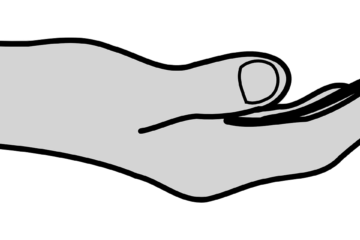Flexible Spending Accounts (FSAs) can be extremely useful financial and health care planning tools. Although you should understand that not everyone should take advantage of them. Like most (if not all) other financial tools, there is no one-size-fits-all approach. But in order to understand what an FSA is and if it can benefit you and your family, let’s get into it now.
(1) What is a Flexible Spending Account?
An Flexible Spending Account can be a useful tool for some people to help pay for medical expenses while saving money on taxes.
With an FSA, you can pay for:
- Medical expenses
- Dental expenses
- Vision expenses
- Prescription meds
- Over-the-counter meds
- Medical devices (crutches, pacemakers, thermometers, blood pressure cuffs, etc.)
- And hundreds of other medical expenses
Any money that is put into a Flexible Spending Account is done so tax free. This reduces your taxable income (which is a good thing) so long as the FSA is used for a qualified medical expense.
Like a Health Savings Account (HSA), an FSA also has annual limits to it. In 2022,the limit to what one person can put into an FSA is $2,850.
A Flexible Spending Account is much like an HSA but with a few key differences:
- An FSA does not roll over year to year like an HSA does
- The account is funded at the beginning of the year instead of you saving the money up in the account first
- An FSA can be used with a health insurance plan that is not a high-deductible plan
Let’s go over these differences, because they are very important.
FSAs Do NOT Rollover
There are a few exceptions to this rule, especially with the CARES Act. However, most generally, the funds that are deposited into a Flexible Spending Account do not roll over year to year.
This means that if you deposit money into an FSA, you better use it or it goes away.
If you are going to use an FSA, be certain that you will have medical expenses throughout the year so that you can take advantage of it.
FSAs Are Funded At The Beginning
This is one of the major differences between a Health Savings Account and a Flexible Spending Account.
With an HSA, you put the money into the account and you can only use it as it accumulates.
However, with an FSA, you tell your employer how much you want to contribute to the account throughout the year and that much money will be available at the beginning of the year. You don’t have to wait for it to accumulate.
For example, Jack wants to put $2,000 into his FSA. He gets paid every two weeks which means that he will pay about $77 into the FSA every pay period. At the beginning of the year, he will have the entire $2,000 to use if he wants. He won’t have to wait to accumulate $2,000 in the FSA before he can use the funds.
FSAs Are Used With LOW-Deductible Health Care Plans (Mostly)
Yes, there are some exceptions to this rule (which we’ll get into in a minute). But for the most part, FSAs are used with low deductible health care plans. If you have a high deductible health care plan (an HSA eligible plan) then you will not be able to have an FSA also.
Think of the hypothetical person, Jen. Jen is 55 and not in great health. She has to go to the hospital regularly and frequently gets hospital bills. Because of this, she decided to get a low deductible health insurance plan at her job. Since she has a low deductible health insurance plan, she is eligible for an FSA. She decides to take advantage of it to save money on taxes.
(2) Types of FSAs
There are three main types of Flexible Spending Accounts:
- Healthcare
- Limited Purpose
- Dependent Care
Healthcare FSA
A Healthcare Flexible Spending Account is the main type of FSA that we have been talking about so far. This is the traditional FSA that most people think about. This account can help pay for your medical expenses and save you money on taxes.
A healthcare FSA can only be used with a low-deductible health insurance plan (non-HSA eligible).
Limited Purpose FSA
The Limited Purpose Flexible Spending Account is the exception to the rule. Someone can have a Limited Purpose FSA AND have a high-deductible healthcare plan at the same time. This means that a person can contribute to an HSA as well as an FSA. However there is one main stipulation:
The money in a Limited Purpose FSA can only be used for dental and vision expenses. The money in this account cannot be used for any other medical expenses (thus the limited purpose).
An example of someone who would likely take advantage of a Limited Purpose FSA is someone who is healthy and does not go to the hospital unless it is a rare emergency (car wreck, accident, broken bone, etc.) but still needs to pay for dental work and/or glasses and/or contacts.
Dependent Care FSA
A dependent care Flexible Spending Account is an FSA that can be used to help pay for dependent care that you may incur. This includes:
- Before and after school care for dependent children under 13
- Babysitting expenses for dependent children under 13
- Daycare for dependent children under 13
- Preschool or dependent children under 13
- Summer camp for dependent children under 13
- Care for spouse or dependent relative who is menatlly ill or unable to care for themselves
(3) Tax Implications of an FSA
Let’s go over the basics of how you put money into a Flexible Spending Account.
When you earn money at your job, that money gets taxed and then it gets deposited into your bank account and you can spend it. But with an FSA, you can bypass that money being taxed.
For example, if you are in a 22% tax bracket and you earn $1,000 and do NOT have an FSA you will have to pay $220 in taxes. This means that you will have $780 to take home to spend on whatever you want.
But if you have an FSA and you put $100 into it, you will not be taxed on that amount. You will be taxed on $900. At the same 22%, you will pay $198 in taxes.
You have saved $22 in taxes!
Here’s how it looks:
| Without an FSA | With an FSA | |
| Money Earned | $1,000 | $1,000 |
| FSA Contribution | $0 | $100 |
| Tax Rate | 22% | 22% |
| Taxes Paid | $220 | $198 |
Final Thoughts
A Flexible Spending Account can be a really useful tool if it is used correctly. An FSA is great for the person who KNOWS that they will incur medical bills throughout the year.
If you are not sure if you will have medical expenses or not then don’t use an FSA because you will LOSE the money if you don’t use it by the end of the year. That is the most important thing to understand about FSAs.
But if you have a low deductible healthcare plan and you want to save some taxes, then go for it!
I am here to give you the tools to make sound financial decisions!
These things are very useful for being able to adult properly and responsibly.
Check out my other insurance articles here. 🙂
I’m here for you!
You can do this!
Until next time!



0 Comments